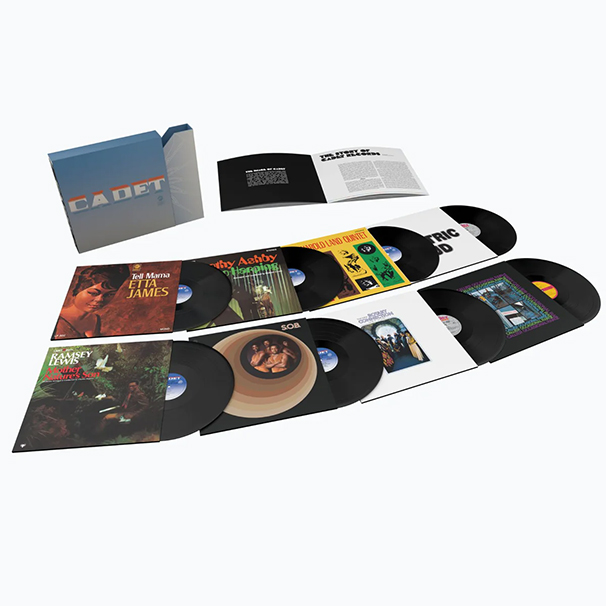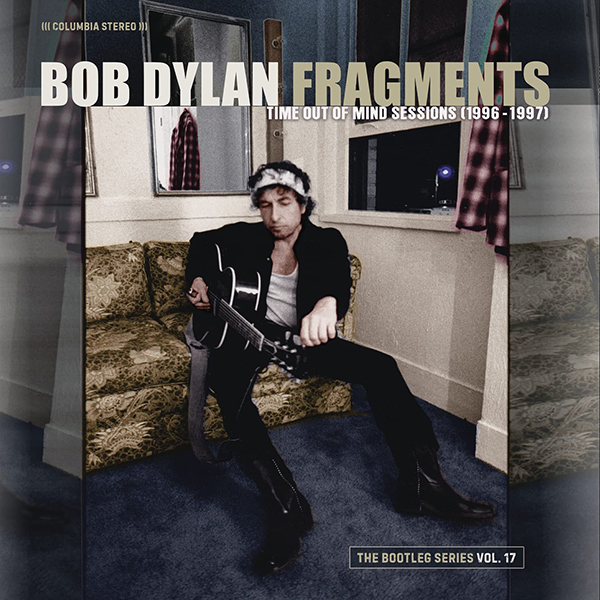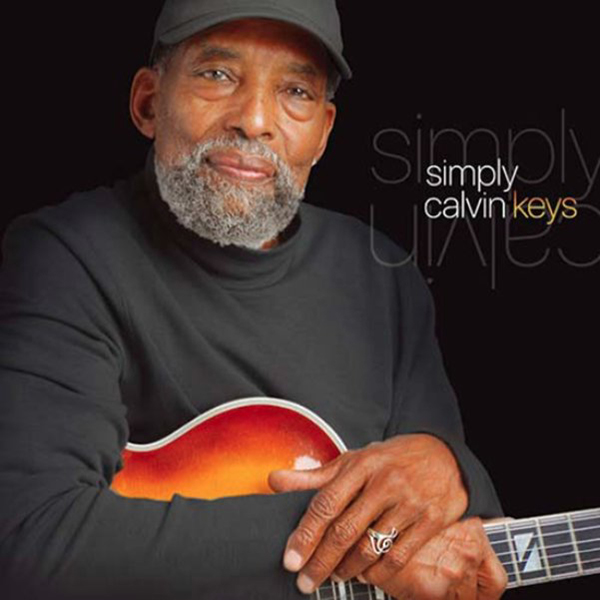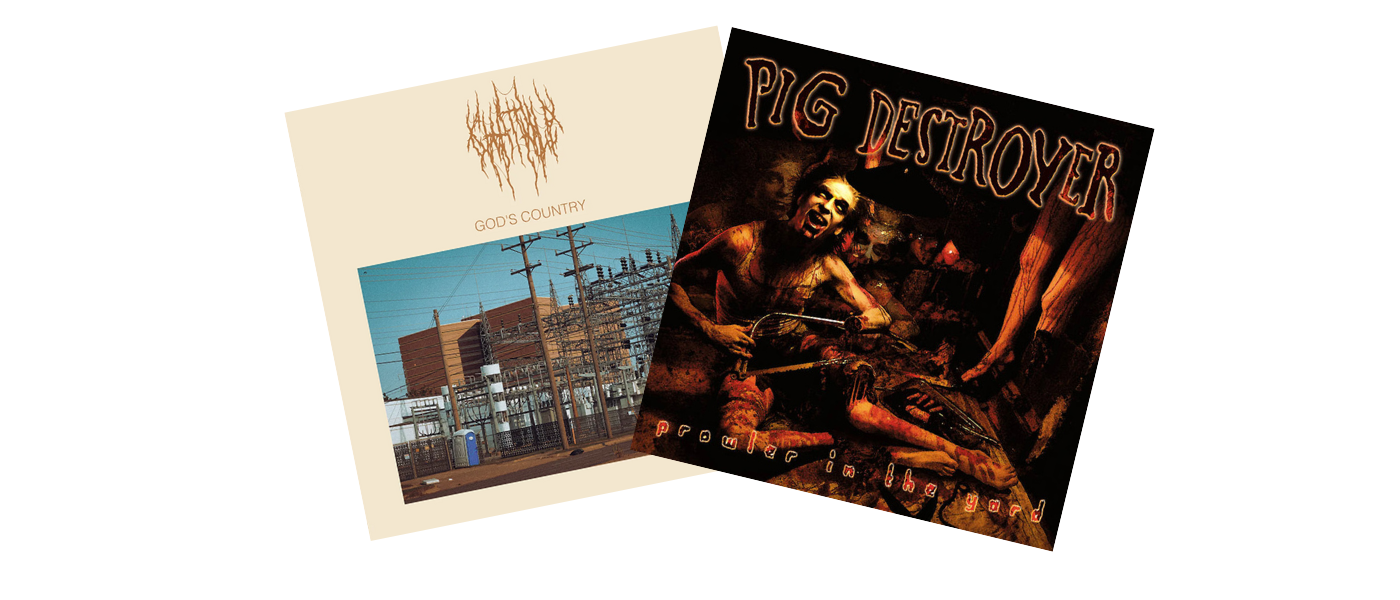
We’ve been over this before, but I guess it bears repeating…
A Vinyl Me, Please (VMP) membership can be a frustrating experience with a remarkably high upside. Mostly, attaining a satisfactory experience requires one to manage their expectations, and to demonstrate great patience with the process of receiving the company’s products. Once a purchaser receives their order in a playable condition, the sounds are often special. Sometimes sublime. You just gotta be willing to wait.
I preordered The Story of Cadet Records on the first of December in 2022. I received it on Tuesday, which was actually earlier than advertised. In the interim, I’ve had to ask for replacements of just less than half of my monthly orders, almost always as a result of pronounced warps. Not talking about slight warps, which I think you just have to expect & accept these days. I’m talking about the dying hula-hoop variety. The drunken sailor with vestibular issues on stormy seas kind of warps.
There’s always some debate about whom to fault for the Warp Epidemic. Some folks blame the delivery carriers or the distributors’ packaging practices. Some blame the pressing plants themselves. I’ve done enough research by now to suspect the latter, but I’m not saying that I’m right. I’m saying that the best information I’ve uncovered suggests that the pressing plants are the most likely culprits to me.
And, while VMP is certainly not alone in this fight, their need-for-replacement rate is abysmal. I’m thrilled that they’re willing to stand by their products but chagrined at having to access their customer support services at the rate that I do. And I considered canceling my order of the Cadet set to avoid having to go through the misery of having individual albums in a box set replaced. I’m glad that I did not.
Because The Story of Cadet Records is a stone groove, man. It’s absolutely in line with why I joined VMP to start with. Their tagline was (and might still be) “lost sounds found.” And – while it seems pretty silly to think of Kasey Musgraves (purveyor of two Records of the Month now) as an under-appreciated artist – it’s pretty applicable here. Obviously, I was familiar with Etta James, Muddy Waters, and Ramsey Lewis going in. Dorothy Ashby too, but only because VMP had turned me on to her previously. But those are only half of the artists included in The Story of Cadet. The remaining four were mysterious to me.
Cadet was a subsidiary of Chess Records and was developed as a way to branch out from the more restrictive expectations of straight Blues and Rhythm and Blues connoisseurs. The Chess brothers were pretty forward-thinking in their ways and were always scanning the horizon for the Next Thing. Whether that was branching out into television, purchasing their own radio stations, or recruiting new writers and arrangers to venture forth into new sonic pastures, they were on the move.
The Story of Cadet is the sound of being on the move.
Electric Mud finds Waters in the middle of a psychedelic cross-eyed hurricane. Actual harps as opposed to harmonicas. Fuzz and wah and synths, oh my. Mother Nature’s Son is made up of Lewis’s interpolations of songs from the “White Album,” which was zero years old at the time. Tell Mama, while clearly a straight shot of traditional Rhythm and Blues, was recorded in Muscle Shoals, far from Chicago’s east side, as a means of pushing James in a newer, ostensibly more marketable, direction in order to capitalize on the investment that the Chess brothers had made in her. The Ashby record is a personal highlight for me and was my main impetus for purchasing the box. It lives up to my mind’s hype. Like a personal soundtrack to a movie about my imagined world travels if they’d occurred in the early 1970s.
Of the remaining records, the Harold Land Quintet’s The Peace-Maker is my current fave. It’s a by-the- book Post-Bop groover with some tasty vibes courtesy of Bobby Hutcherson. It might be that I haven’t had time to assimilate the other offerings quite yet. My palate is still developing, but I haven’t quite connected with records by Shades of Brown and the (New) Rotary Connection. The extensive (and exquisite) liners go to great lengths to paint the portrait of Cadet as a boundary-pushing, explorative juggernaut, and that sort of sums up these two albums to me. Impressively engineered but lacking a center. A bit directionless. Or perhaps just directed toward too many targets, which is essentially the same thing. The Terry Callier record has some transcendent moments that point towards what could have been a greater record had there been more parameters and a shorter run time. Still, it feels like a discovery. I’ll play it until I love it fully.
All of these albums are AAA productions except for the second side of the Ramsey Lewis record, which was cut from a digital source to compensate for the degradation of the original master. Bernie Grundman turn the knobs on all but the Muddy record, which Barry Grint remastered. They all sound as great as I’m guessing they’ll ever get. The Peace-Maker is especially pleasing as a result of the instrumental detail and clarity. The Ashby record, Afro-Harping, and Tell Mama are both stellar, the sounds more humid and dense. Like walking through a spray of cool tones on a hot day. The recording techniques of the era dictate that there will be hard panning to contend with, and a listener’s enjoyment might come down to their level of tolerance for such. Overall, I don’t find much to object to.
These records were pressed at GZ, which is objectively not as great as it could be. I’d have loved to have heard what QRP or RTI could have done here. Or even VMP’s own yet-to-open facility. I’d have happily waited for that. There is some low-level surface noise throughout the set with Tell Mama being the quietest. The fact that there are not any moments of non-fill or off-center pressings is refreshing. The fact that there are no repeating ticks or any static is a full-blown GZ miracle. And, finally, only two of my records have any warp whatsoever, and neither is anything that I’d complain about. And I’m not even grading on a 2023 curve. Overall, GZ did better than I’d expected, but not quite as great as I’d hoped. It’s a strong win. I’m all the way in on this set. It’s worthy of its spot next to VMP’s exemplary Women of Motown on my shelf. And that’s really saying something…

My first exposure to Bob Dylan was as a result of his participation in the “We Are The World” monstrosity. I was bopping along watching my main guy, Michael, in his sequined socks. Things were going well. Everything was under control, and then this weirdo starts caterwauling through his parts with the distant look of someone far away and well past interest, let alone investment, in this most momentous production. Who is this guy, and who let him slide past Quincy and Lionel into an actual vocal booth? And who would have imagined the breadth of change that the times would soon bring?
My second exposure to Dylan was an impulse buy that I talked my mom into at the Augusta Mall in Georgia. The cost for the 3CD set covering Dylan’s first installment in his now decades-long Bootleg Series would have seemed preposterous at the time, but my mom’s cool. I brought that set home, and the hook was set firmly in my jaw for the rest of my days. I hope I have a lot more to look forward to in this life, but if not, at least I lived long enough to hear the 17th installment in that same series. It’s devoted to Time Out Of Mind from 1997, one of Dylan’s true masterpieces, and the launching pad for a career renaissance that is still rolling thunderously into history.
If you’re not into the whole brevity thing, the set is laboriously titled Fragments – Time Out Of Mind Sessions (1996-1997): The Bootleg Series Volume 17. It takes about as long to say as it takes to listen to “Highlands,” which populates the original album’s entire fourth side. The sessions that resulted in Time were legendarily fraught, mostly due to tension between the artist and the producer, Daniel Lanois. Dylan went on record saying as much almost as soon as the actual record was available for consumption. But I was not deterred. I snapped up an original pressing of Time upon its initial release. It was a prize then, and it’s a crown jewel now. Fragments is a different sort of reward.
The first two records in the newer set are comprised of the original work remixed. I doubt that fans would have any way of knowing how involved Dylan actually is in these sets, but it sure seems like he’s getting his original vision for Time Out Of Mind out into the world after waiting a quarter century for just the right moment. It’s certainly a departure from Bootleg Series past. There are outtakes and alternates as usual, but as far as I know, this is the first time that original recordings were remixed and re-released as part of the series.
So, take that Daniel Lanois. Be gone with your swampy atmospherics. We’re drying off after having bathed in reverb all these years, and we’re being rewarded with a more direct experience as a result. We’re getting at least a little closer to Dylan himself, which is something seldom permitted even when reading Chronicles. And this was the perfect set for it. There’s some live footage of Dylan playing in front of a studio audience from around the time of the original’s release. He rips an obstinate single-note guitar solo during “Love Sick” that brings a full-blown chortle from his bassist, Tony Garnier. It’s a smartass move that is now rivaled by the very release of Fragments. Raspberries all around.
I say all of that with love in my heart. For Lanois’s original, Dylan’s (more specifically Michael Brauer’s) rejiggering, and most everything that Dylan has done since 1997. He’s rode the momentum of one massive release through what initially seemed like a late-career revival, but has lasted for longer than most bands throughout history. Time Out Of Mind ripped a hole in my mind/time continuum. As much as I’ve dug Love and Theft, Tempest, Rough and Rowdy Ways, hell even the often overlooked Together Through Life, I think I’ve loved Time Out Of Mind even more. Fragments gives me another arrow in my quiver. I’ll shoot according to my mood, but I’ll get miles of use out of both versions.
Discogs has a listing for this set that purports to have been pressed at Pallas. I wish mine had been, but my copy clearly shows “MPO” stamped in the dead wax. Those folks do inconsistent work. My discs are mostly flat, a couple perfectly so, but there’s some low-level noise more or less throughout, and a repeating tick that makes the alternate version of “Make You Feel My Love” unlistenable. Which sucks. It’s not like some boutique label is going to get the rights to do an audiophile reissue of a Bootleg Series title. But my original is pristine, and the imperfections in my set are mostly contained to the outtakes, which is the less essential part of the program for me. Things mostly worked out. Sometimes you get lucky. It’s a good time to be a Dylan fan, and that shows no signs of abating soon. The road may actually go on forever…

Like a lot of Bay Area residents in 2023, I’m thinking of making a move. The area’s issues with wealth disparity, the ever-increasing cost of living, property crime, homelessness, and the general mental health crisis are well-documented. But the Bay has much to recommend too. It’s a matter, like most things, of where one chooses to place their focus. When I think of what I’ll miss most, beyond the personal relationships that I’ve established here over the years, I consider the natural beauty, the ease of maintaining an active lifestyle, and the Jazz and art scenes.
I caught Terrace Martin at Yoshi’s a couple of years ago, and he brought Ambrose Akinmusire out for a few songs, as well as Calvin Keys, a guitarist whom I was unfamiliar with at the time. Mr. Keys exuded the air of a venerable statesman. He commanded the stage from a seated position while playing tasteful lines and solos as the oldest member of that night’s ensemble by several decades. Some sleuthing revealed that Keys is a longtime Oakland resident, recorded at the dawn of the ‘70s for the esteemed Black Jazz label, and still gets his music out today as an octogenarian with over five decades of steady work on his resume.
Recently, LifeForce Jazz, a label devoted specifically to the work of Bay Area players, released Simply Calvin, a collection of tunes that Keys recorded back in 1992. A further investigation revealed that this is actually a re-release of Calvinesque from 2005, but with a different running order. Not sure why these tapes (files?) sat on the shelf (in a hard drive?) for so many years without having had the opportunity to get out and breathe. The initial 13-year wait was long enough, but to have this collection of songs available to hear on wax after 30 years almost makes it worth it.
No one is re-writing any rule books here. And the sound is appropriately clean for an early ‘90s recording. That’s not a slight. Jazz guitarists can get as gritty as you’d like, but I don’t typically think of fuzzed-out, fat tones when I consider the genre. Keys’ playing is restrained and sensitive, whether he’s out front or providing the foundation for another player’s explorations. He’s not dirtying up the place with a bunch of squawking and carrying on.
Simply Calvin is made up mostly of covers – some of the more recognizable being Herbie Hancock’s “Dolphin Dance,” and Billy Strayhorn’s “Lush Life.” There’s also a take on Marvin Gaye’s “What’s Going On,” which is mysteriously credited to someone named “McCracklin.” The Keys version finds the guitarist trilling out the high parts sung over the string swells in Gaye’s original, the material made heavier knowing that the song was initially composed by Obie Benson (of the Four Tops) as a response to police brutality during a Berkeley protest of the Vietnam War. In that way, Keys has been keeping it local for years now.
As well-loved and as respected as Keys is throughout the Bay Area, his pianist from the Simply Calvin sessions might be the most well-known name on the national level by now. Jeff Chimenti has played in some version of a Grateful Dead-adjacent lineup since shortly after these sessions were captured for posterity. He played the massive 50th Anniversary shows billed simply as “The Dead” in 2015, which means that he’s played to sold-out football stadium-sized audiences at least five times in his day. Hearing him play with the Keys combo shows that he could have taken things in an entirely different direction and that his ability to improvise as part of a “Jam Band” was developed honestly and truly as a purveyor of America’s greatest contribution to art.
LifeForce did a fine job with this reissue from a manufacturing perspective. My first copy was too warped to play, but my replacement had only a minor warp that doesn’t affect play. This isn’t the quietest vinyl pressing I’ve heard, but the noisier spots are brief and not especially obtrusive. Unfortunately, the most compelling number on the record, a Keys solo run through his own “Marela” is also its quietest, which reveals the sonic imperfections more plainly than one would like. Overall though, Simply Calvin is a killer snapshot of a Bay Area hero plying his trade in an unassuming, but engaging and stimulating way. It’s worth seeking out for lovers of Jazz guitar in the Bay Area and beyond.


